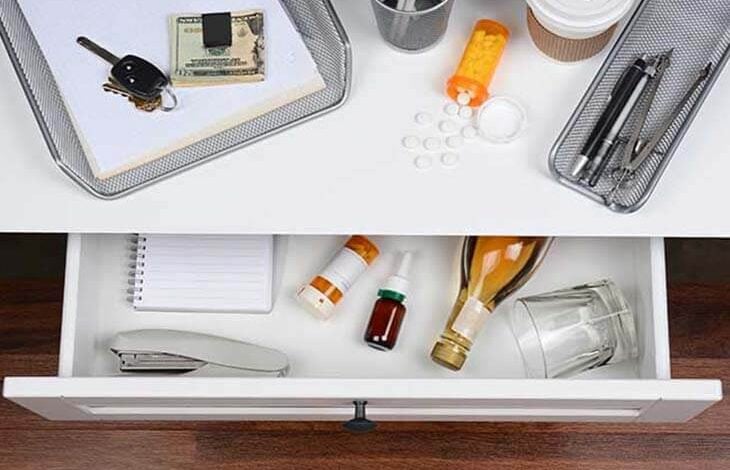Substance abuse in the workplace affects both employers and employees with drastic risks to safety, productivity, and reputations. The National Clearinghouse for Alcohol and Drug Information (NCADI) estimates companies lose $100 billion a year due to alcohol and drug-related incidents.
Take a closer look
8% of the American adult and adolescent population is affected by substance abuse disorders
75% of people in the U.S. struggling with addiction are employed
Unintentional poisoning, including drug overdose, was the leading cause of accidental deaths in the U.S. in 2016, surpassing motor vehicle accidents
Construction, entertainment, recreation, and food service industries have the highest rates of substance use disorders
20% of work-related fatality victims test positive for drugs or alcohol
40% of workplace fatalities are caused by someone testing positive for drugs or alcohol
substance-abuse-at-the-workplace
Drugs and Alcohol Affect the Workplace as a Whole
Lower morale
Accidents
Thefts
Increased likelihood of interpersonal problems
Illicit activities at work such as buying and selling drugs among other employees
Higher turnover
Frequent training of new employees
And Make Work Difficult for Employees Themselves
Poor attendance
Sleeping on the job
Poor attention and concentration
Working while hungover or in withdrawal
Disciplinary actions
Accidental injury or death
Workplace Factors can Contribute to Alcohol and Substance Abuse
Stressful or highly competitive environments
Boring or isolating positions
Low levels of autonomy, complexity, or control over work conditions
Aggressive, verbally abusive, disrespectful, or harassing behavior
Availability of alcohol
Food service, construction, mining, maintenance sectors
Predominantly male workplaces have a higher level of substance abuse for both genders
Signs of an Alcohol or Substance Abuse Problem at Work
Showing up with hangover symptoms, such as headache, sensitivity to light, and irritability
Unexplained changes in mood or behavior
Withdrawal from other coworkers
Tense or strained interactions with others
Sleeping while at work
Decline in overall appearance including bad breath, wrinkled clothes, and disheveled hair
An unexplained decline in work quality
An unusual amount of time needed to complete a routine task
Missing deadlines
Unexplained disappearances while at work
Bringing alcohol or substances in a concealed container
Repeatedly using mints or mouthwash
Avoiding supervisors
Frequently calling in sick or not showing up for scheduled shifts
Frequently absent on Fridays, Mondays, or after payday
What to do if a Coworker has a Problem
We rely on our coworkers for a safe and pleasant work environment. They are our team members and friends. But what happens when we suspect that a coworker is showing up to work intoxicated, or is battling addiction?
Many of us want to defend them and cover-up for their mistakes so that they’re not in danger of losing their job. Unfortunately, this just enables the problem to spiral further. If you believe a coworker may be struggling, it is important to intervene.
If you are close, you may want to have a conversation with them in a neutral setting, and with an empathetic tone. Be prepared to listen and not point fingers. Explain why you are worried. If you don’t feel comfortable having a face-to-face conversation, speak with a supervisor or HR manager.
Akua Can Help
Akua offers a range of rehabilitation and recovery programs. From detox to residential and intensive outpatient options, a clinical team works closely with each client to determine the best care for their needs. If you are curious for yourself or a loved one, call 833-258-2669.
24/7 ADMISSION HELPLINE 888-629-6707




